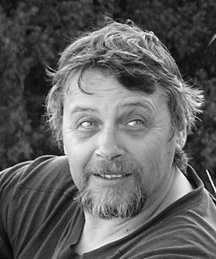 Today we are starting another series of conversations with Antero Alli on an experiential medium called ParaTheatre.
Today we are starting another series of conversations with Antero Alli on an experiential medium called ParaTheatre.
Antero has been producing work in various mediums of theatre and
paratheatre since 1977 and, experimental video documents and feature
fiction films since 1993.
His paratheatre work is documented in his book, “Towards an Archeology
of the Soul” and in his videos “CRUX”, “Archaic Community” and “Orphans of Delirium”. Alli’s 2005 docufiction feature, “The Greater
Circulation”, incoporates a paratheatre performance in a critically
acclaimed cinematic treatment of poet Rainer Maria Rilke’s “Requiem
for a Friend”. His recent experimental feature, “The Invisible Forest” was inspired by the ideas of French Surrealist playwright/actor,
Antonin Artaud.
Twice a year, he facilitates paratheatre labs in Berkeley, California
with each lab having a focus on rituals based on specific themes, like
movements recalled from dreams, beginer’s mind, and others.
In this first episode, we touch upon the following topics:
- What is ParaTheatre?
- Reasons to do ParaTheatre
- To get high, to get in a certain state of consciousness
- Spiritual reasons, self-healing in a way. Experience communion with minimal interference of one’s beliefs, conceptions, ideas.
- To stay honest to one’s impulses, get in touch with spontaneity, flexibility of ego
- To induce visions: it’s a process of entering of feeling my body deeply; releasing energies that are trapped in my body, committing fully to the expression of those energies, and releasing images that have been trapped in the body with these energies.
- Performance arts people enter because they’ve got into a rut of repetition, to let their talent take over
- As a yoga: a physically intensive discipline with mind attention and intention and focus
- Those who have outgrown the hedonic motivation, the need to get high, move to circuit 6 in a way
- People who approach it more like a worship, more like a 7th circuit
- What is a ritual?
- Ritual as initiatic experience
- Cultivate greater receptivity to the unknown
- Ritual Process
- Group Circle
- Talk about what happened
- Let off steam
- Begin psychological intergation of pre- or post-verbal experiences
